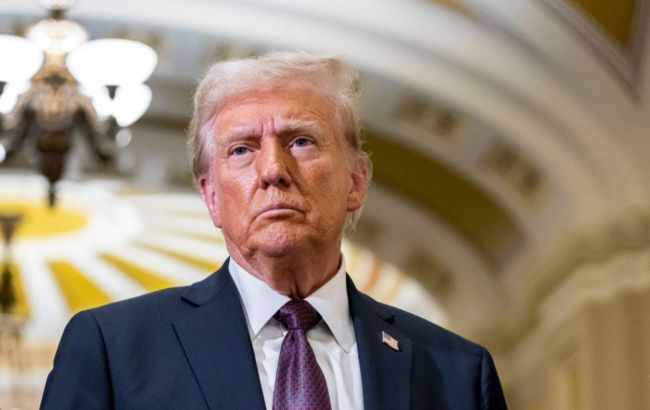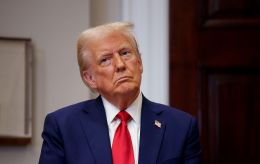'Not right tool': Japan makes G20 statement amid Trump's tariffs
 Photo: Donald Trump, President of the United States (Getty Images)
Photo: Donald Trump, President of the United States (Getty Images)
Japanese Finance Minister Katsunobu Kato told G20 countries that tariffs are not the right way to address imbalances. He said such issues should be resolved through domestic efforts, according to Bloomberg.
"Japan said that tariffs aren’t really the right tool to fix excessive current accounts imbalances," Kato told reporters Thursday.
US Treasury Secretary Scott Bessent did not attend the gathering.
Japanese Finance Minister Katsunobu Kato told G20 countries that tariffs are not the appropriate tool to resolve economic imbalances, emphasizing that such issues should be addressed through domestic efforts.
As reported by Bloomberg, Kato made the remarks after the first day of the G20 finance ministers and central bank governors meeting. He served as the lead speaker at several sessions, including one of the most prominent, focused on the global economy.
His comments came amid preparations for a new wave of US tariff hikes ordered by President Donald Trump. Trump sees tariffs as a means to reduce the US trade deficit with various countries and to bring more manufacturing back to America.
According to Bloomberg, Kato said he had stressed the importance of an open and free multilateral trading system and predictable economic governance. However, he added that there had been no specific talks about coordinating resistance to US policy.
A Japanese Finance Ministry official accompanying Kato noted that many G20 participants felt that global economic risks had not materialized to the extent previously expected. The official also said market tensions appeared to have eased somewhat.
Still, many participants, including representatives of international organizations, emphasized the need to remain cautious about potential future risks.
The report adds that the escalation of Trump’s tariff policy is prompting many countries to seek stronger international cooperation. Bloomberg previously reported that the EU is considering coordinated measures with partners such as Canada and Japan.
US–Japan trade tensions
Japan is already facing 25% tariffs on cars and steel, and starting August 1, base tariffs on exports are also set to rise to 25% if no trade agreement is reached.
Months of negotiations between Japan’s chief negotiator, Resei Akazawa, and Trump’s aides have yielded little progress, with auto tariffs remaining the key sticking point.
Meanwhile, the Japanese yen has been highly volatile since April, when Trump announced sweeping tariffs. Amid political uncertainty ahead of Japan’s Upper House elections, the yen is now at its lowest level since the trade war began.
"Continued attention should be paid to excessive volatility in the foreign exchange market that’s driven by factors including speculation," Kato said, adding that existing understandings on currencies should be maintained.
Last week, Trump imposed 25% export tariffs on goods from a dozen countries. These tariffs are scheduled to take effect on August 1 if no trade deals are finalized.

